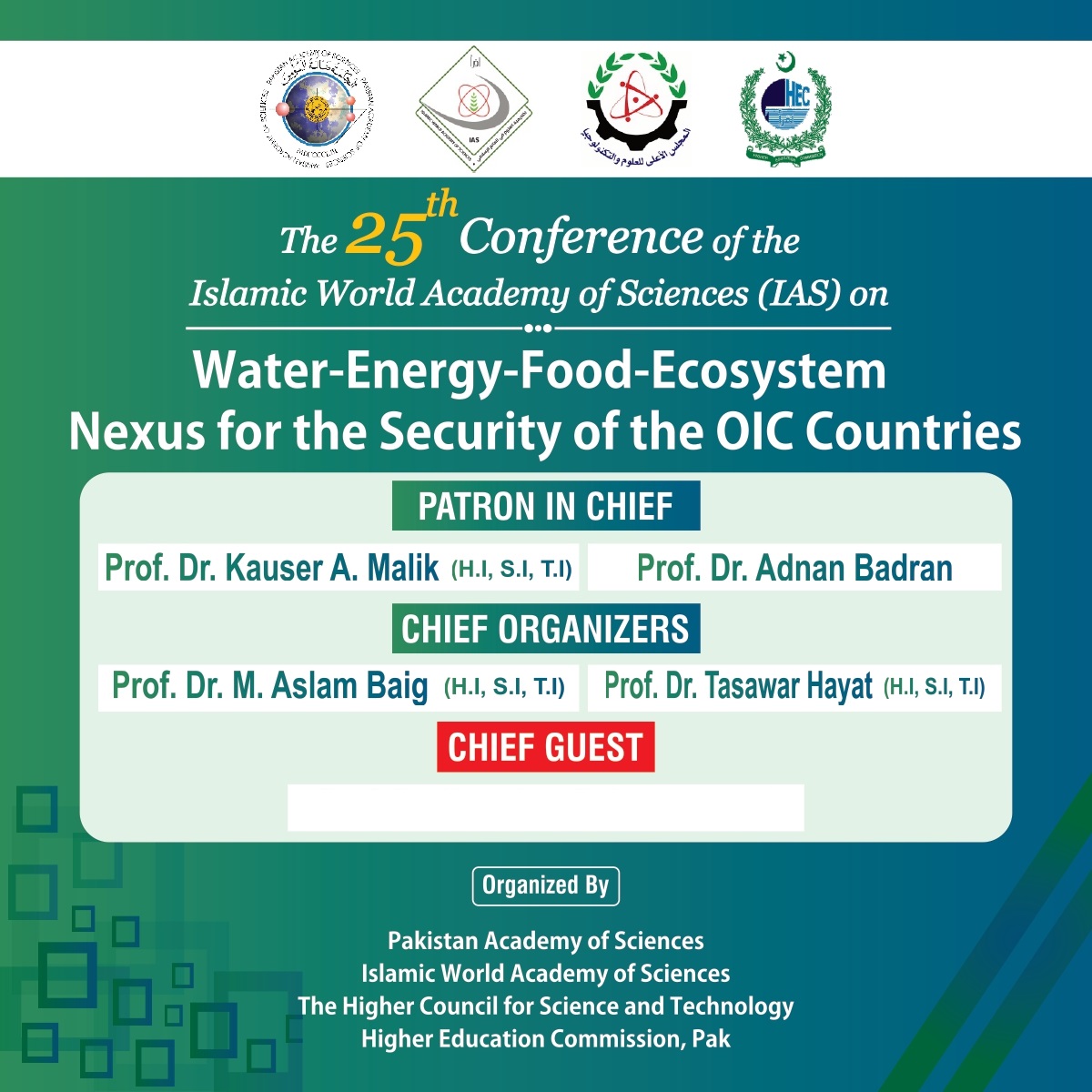The 25th Conference of the Islamic World Academy of Sciences (IAS) on WATER-ENERGY-FOOD-ECOSYSTEM NEXUS FOR THE SECURITY OF THE OIC COUNTRIES
The Pakistan Academy of Sciences (PAS), in collaboration with the Islamic World Academy of Sciences (IAS), The Higher Council for Science and Technology (HCST) and the Higher Education Commission (HEC), Pakistan is organizing the 25th Conference of the Islamic World Academy of Sciences (IAS) on “WATER-ENERGY-FOOD-ECOSYSTEM NEXUS FOR THE SECURITY OF THE OIC COUNTRIES,” which will be held in Islamabad, Pakistan, from July 22 to July 24, 2024.
The conference intends to address the linked concerns of water, energy, food, and ecosystem security, all of which are vital to the long-term growth of OIC member nations. By bringing together prominent scientists, policymakers, and professionals from diverse sectors, the event hopes to stimulate collaboration and creativity in addressing these important concerns.
Introduction
The Water-Energy-Food-Ecosystem (WEFE) nexus is a conceptual framework that emphasizes the interconnectedness and interdependencies between water, energy, food, and ecosystems. It acknowledges that actions and decisions in one sector can have significant impacts on the others, creating a complex web of relationships that must be managed holistically to achieve sustainable development goals.
The WEFE nexus approach recognizes that water, energy, food, and ecosystems are not isolated sectors but are closely linked through various feedback loops, synergies, and trade-offs. For example, water is needed for energy production (e.g., hydropower), food production (e.g., irrigation), and ecosystem health (e.g., maintaining wetlands). Energy is required for water extraction, treatment, and distribution, as well as for agricultural production and processing. Food production, in turn, depends on water availability, energy inputs, and the health of ecosystems for pollination and soil fertility. Ecosystems provide essential services such as regulating water flows, purifying water, and supporting biodiversity, which are crucial for sustaining agricultural productivity, energy generation, and overall human well-being.
By adopting a WEFE nexus approach, policymakers, planners, and stakeholders aim to enhance resource efficiency, reduce trade-offs and conflicts between sectors, and promote integrated and sustainable management practices. This approach is particularly relevant in the context of increasing water scarcity, energy demand, food insecurity, and ecosystem degradation driven by population growth, urbanization, climate change, and other global challenges.
Click here to download the Conference Brochure

